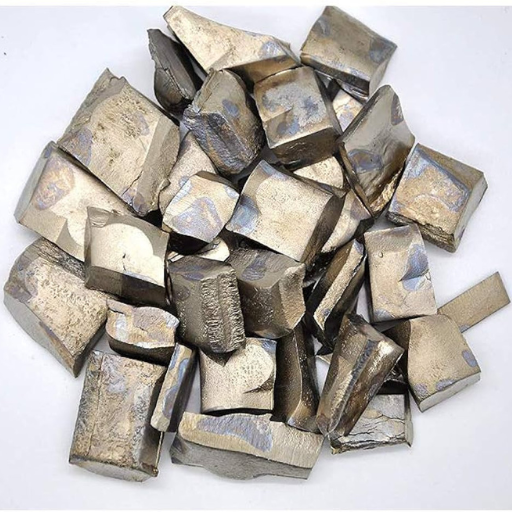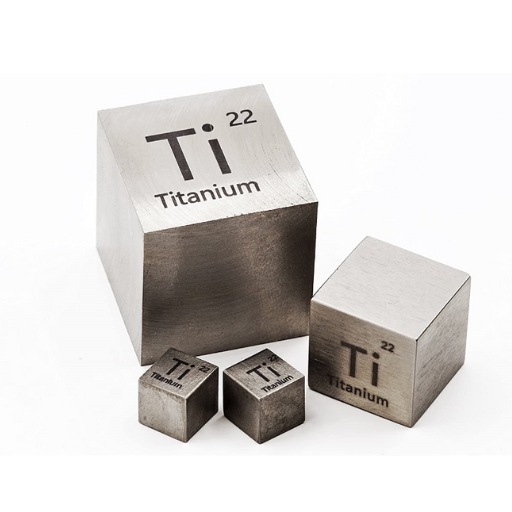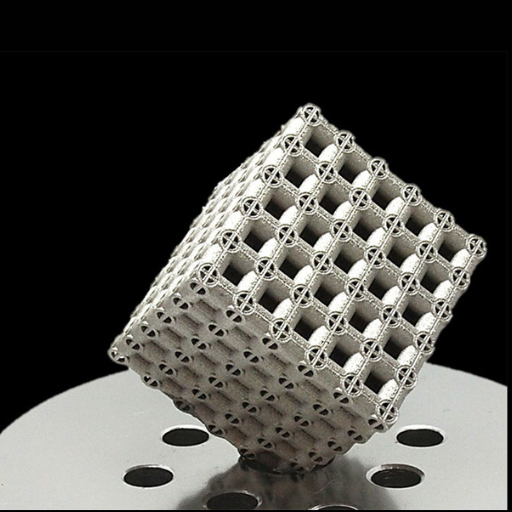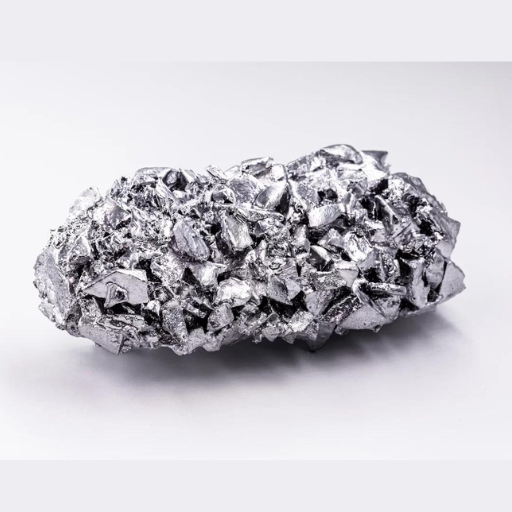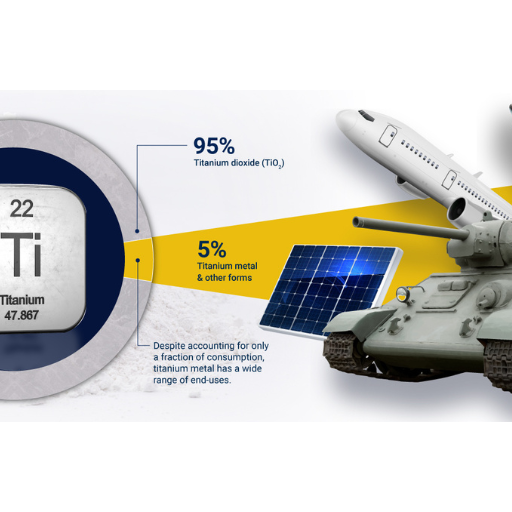Titanium, a metal renowned for its impressive strength-to-weight ratio and remarkable corrosion resistance, has carved a unique niche for itself in various industries. This blog delves into the wonders of titanium, tracing its journey from discovery to its pivotal role in modern technology and everyday applications. By examining the multifaceted uses and distinctive properties of this extraordinary element, we aim to provide a comprehensive overview that highlights why titanium remains an invaluable resource in sectors ranging from aerospace to healthcare. Join us as we uncover the secrets and innovations driven by this versatile metal.
What Are the Key Properties of Titanium?
Understanding Pure Titanium and Its Characteristics
Characterized by a striking range of features, pure titanium is an invaluable material in a variety of fields. It has an outstanding strength-to-weight ratio, making it comparable with steel but much lighter. It has high corrosion resistance and can withstand harsh environments such as sea water and chlorine exposure. This means that it is biocompatible and thus non-toxic to the human body and can therefore be used for medical implants. Moreover, pure titanium has excellent thermal conductivity and high melting point hence suitable for high-temperature applications; these are some of its distinct features that make it important in industrial and medical uses even today.
Why Corrosion Resistance is Important?
Titanium’s corrosion resistance is a central factor in increasing the life span and durability of products or structures made from this metal. For example, in aerospace industry, the ability of titanium to resist corrosion from seawater, salt spray among other industrial pollutants ensures aircraft components have long service life and are reliable. These include its stable protective oxide layer (titanium dioxide, TiO₂) formation when exposed to oxygen which serves as a barrier for corroding elements.
Corrosion resistance also plays an important role in medicine where implants need to be stable and safe as well as surgery tools. Biocompatibility enables the metal not lose functionality or become compromised around bodily fluids or sterilization chemicals inside the body.
This can protect against expensive repairs or replacements resulting from damage due to seawater corrosions common in marine installations including desalination plants, underwater structures as well as shipbuilding since these areas are frequently flooded by salty conditions.
In general terms, technical parameters underpinning impressive corrosion resistance include:
- Stable oxide layer formation called titanium dioxide (TiO₂)
- Resistance to chloride-induced pitting or crevice corrosion
- High oxidation resistant property within oxidizing environments
These properties ensure that titanium remains durable, reliable, and cost-effective alternative under harsh and tough conditions.
How Does Titanium’s High Strength-to-Weight Ratio Stand Out?
Titanium has a very high strength to weight ratio which makes it an attractive material for many applications. This unique characteristic implies that titanium provides equivalent strength to steel in many cases but at significantly reduced weight. For instance, in the aviation industry, this feature has implications of substantial fuel savings and improved performance. Withstanding the stresses of flight is one of the advantages that come with using titanium in aircraft, and therefore it is an excellent material for overall reduction of weight thereby improving energy efficiency and payload.
In medical applications, it is light yet strong hence suitable for implants as well as prosthetics. These offer patients better comfort and functionality without adding on any weights associated with denser materials. Furthermore, inclusion of titanium components into automobiles can reduce their mass resulting to enhanced fuel economy and handling capabilities.
In summary, high strength-to-weight ratios make titanium a material of choice where both durability and mass become major concerns.
How Is Titanium Produced?
The Kroll Process
Titanium with high purity is mostly produced by the Kroll process. This starts with the removal of titanium ore, which is mainly ilmenite or rutile and then converted into titanium tetrachloride (TiCl₄) through carbochlorination. The intermediate compound is purified using distillation before being reduced in presence of magnesium under inert atmosphere to obtain titanium sponge. The solid titanium sponge that results is removed, broken into small pieces and remelted to give liquid metal. Developed by William Kroll in the 1940s, this method still remains central to titanium production due to its cost-effectiveness as a means of producing industrial-ready metal.
The Importance of Titanium Ore in Production
The efficient and effective production process requires raw material for creating titanium metal, which is available only from the titanium ore sources. Two primary ores ilmenite and rutile are commonly used nowadays. Typically, ilmenite (FeTiO₃) contains about 45-60% TiO₂ while rutile (TiO₂) contains much higher concentration approximately 90-95%. As a result of its rigidity, rutile has lower processing requirements making it more preferable but scarce resource.
Key Technical Parameters:
- Titanium Dioxide Content: Directly related to how efficient Kroll Process will be depending on how pure the ores such as rutile are reducing both costs and time for processing.
- Ore Hardness: Both minerals are generally hard but mechanical characteristics influence grinding and extraction processes.
- Impurity Levels: Additional steps have to be made in order to remove impurities such as iron from ilmenite; this affects overall yield and quality.
By properly sourcing and processing high-quality titanium ore, manufacturers can ensure higher yield and purity levels in the final titanium metal, ultimately enhancing its application across various industries.
Role of Magnesium and Chloride in Titanium Production
Significant roles are played by magnesium and chloride in the process of titanium production using Kroll Process. As a reducing agent, magnesium changes titanium tetrachloride (TiCl₄) into its starting material form the titanium sponge. It is this step that involves chlorination of titanium ore to get purified TiCl₄ which is a volatile compound. Titanium oxide changes into TiCl₄ at this stage with help of chloride.
In the core reaction during an inert atmosphere, molten magnesium is mixed with TiCl₄ at very high temperatures around 800-900°C causing reduction of TiCl₄ to titanium sponge and production of MgCl₂ as a byproduct. The overall reaction is as follows:\[ TiCl₄ + 2Mg \rightarrow Ti + 2MgCl₂ \]
The MgCl₂ remains must be removed commonly through electrolytic techniques that also recover magnesium for use once again within this cycle thus making it sustainable. The efficiency of magnesium and purity levels in terms of chloride affect directly on the yield and quality produced by titanium sponge, thereby emphasizing their significance in titanium production.
What Are the Main Applications of Titanium?
The Use of Titanium in Aircraft and Aerospace Industries
Titanium is also highly demanded in aircraft and aerospace industries mainly because it has unique strength-to-weight ratio, is resistant to corrosion, and can withstand high temperatures. This makes titanium an ideal material for producing such critical components of airplanes as airframes, engines, fasteners. For example, titanium alloys are used in about 39% of materials produced for modern jet engines resulting in improved fuel economy and decreased servicing costs.
In the aerospace industry titanium is needed to build spacecrafts and satellites. It’s lightweight nature reduces launch weights as well as fuel consumption while it’s capacity to endure space conditions such as radiation and temperature extremes ensures the life span and reliability of these missions. Moreover, tiitanium’s biocompatibility can be helpful during human space flight – being safe for use on medical implants or other live-supporting systems.
To sum up, the combination of durability with light weight, resistance to various environmental factors and exceptional performance abilities makes titanium an indispensable tool for improving capabilities of both aircrafts themselves and aviation technologies in general.
Making Dental Implants out of Titanium
Titanium is widely used in making dental implants due to its biocompatibility, durability, strength etc. The first step in the process involves designing the implant carefully so that it mimics a normal tooth root system. Through osseointegration; which refers to its ability to bond with human bones; titanium is able to integrate with the jawbone. As a result of this fusion with the bone tissue inside the jawbone taking place permanently; dental implants become fixed structures within one’s mouth that provide support for artificial teeth.
Moreover, corrosion from body fluids cannot damage them over long periods since titanium does not corrode when exposed to bodily fluids. Application of surface treatments like roughening implant surfaces improve osseointegration thereby boosting stability plus reducing healing time by far. Additionally, there exist high success rates affiliated with dentition made of titanium as such this type of implants is a preferred choice for dental professionals worldwide. This combination of properties results into restored function and aesthetics so that patients can have the benefits of natural looking and secure dental replacements.
Understanding Titanium Alloys and Their Benefits
The Use of Titanium Alloys in Industrial Applications
Titanium alloys are used in various industrial applications because they have an excellent strength-to-weight ratio, resistance to corrosion, and ability to withstand high temperatures. In the aerospace industry for instance, these metals are beneficial as they help in making structures that are light but strong for aircrafts and space crafts. Moreover, titanium alloys are employed by automobile manufacturers to make lightweight yet high-performance components that can improve fuel economy and reduce emissions.
In medicine, titanium alloys find use in the creation of surgical instruments and implants such as joint replacements where biocompatibility is important for strength. These materials also find use in industries where chemical processing and power generation is involved due to their resilience against corrosion even under severe conditions hence improving the life span of key equipment.
To conclude, titanium alloys demonstrate versatility through their remarkable qualities which makes them inevitable towards advancing industrial technologies and improving operational efficiencies across multiple sectors.
Why Titanium Alloy is Critical in Medicine
In medicine however, titanium alloy has become critical primarily because of its exceptional strength,bio-compatibility ,and resistance to corrosion.The fact it does not cause any harm to human body means that it is tolerated well by human bodies hence it lowers risks associated with reactions when used on implants or surgical apparatus .The perfect balance between weight and force allows medical devices made from this material to be heavy-duty but light at the same time.This includes spine fixation devices, dental implants or artificial joints like knee prosthesis.Really these materials work as a shield within the tough biological systems-assuring long service life of their products without degrading on account of degradation.Thus, such characteristics are crucial in enhancing patient’s outcomes while also increasing longevity rates for medical apparatuses.
What are Titanium Grades and Their Differences?
Exploring Different Grades of Titanium
There are several grades of titanium, each with unique properties that make them suitable for different purposes. These grades are majorly classified based on the alloyed elements and their mechanical behavior.
Grade 1: This is pure titanium and it is highly formable and resistant to corrosion. It has the least strength but high ductility among other types of titanium hence useful in chemical processing where easy fabrication and resistance to corrosion are non-negotiable.
Technical Parameters:
- Tensile Strength: 240 MPa
- Yield Strength: 170 MPa
- Elongation: 24%
Grade 2: Another type of unalloyed titanium but stronger than grade one and more commonly used in industries. It gives a good compromise between strength, ductility, and weldability.
Technical Parameters:
- Tensile Strength: 345 MPa
- Yield Strength: 275 MPa
- Elongation: 20%
Grade 5 (Ti-6Al-4V): The most widely used titanium alloy which contains six percent aluminum and four percent vanadium. It provides excellent balance between various characteristics such as strength, thermal resistance and fatigue resistance making it ideal for aerospace applications, medical implants and high performance engineering.
Technical Parameters:
- Tensile Strength: 895 MPa
- Yield Strength: 828 MPa
- Elongation: 10%
Grade 9 (Ti-3Al-2.5V): This grade consists of three percent aluminium plus two point five percent vanadium hence offering a combination of strong weldability along with high strength. Its applications include aerospace products like bicycle frames.
Technical Parameters:
- Tensile Strength: 620 MPa
- Yield Strength: 483 Mpa
- Elongation:15%
Grade 23 (Ti-6Al-4V ELI): Grade twenty-three ELI indicates that this is an Extra Low Interstitials version of Grade five and custom-designed for medical applications that require top-notch biocompatibility and fracture toughness, for example, surgical implants.
Technical Parameters:
- Tensile Strength: 895 MPa
- Yield Strength: 828 MPa
- Elongation: 15%
Every titanium grade has its own combination of mechanical and chemical properties, which is why titanium alloys are indispensable for various advanced engineering and medical applications.
How to Choose the Right Titanium Grade for Your Application?
Choosing the right titanium grade which suits your purpose might depend on some specific requirements such as strength, corrosion resistance, weight as well as bio-compatibility. Here are some points to guide you:
- Mechanical Requirements: Identify what tensile strength, yield strength and elongation your application demands. For instance, in cases where high-strength material is needed as in aerospace or high-performance engineering fields, it will be better if you used either Grade 5 (Ti-6Al-4V) or Grade 23 (Ti-6Al-4V ELI) because they have higher tensile and yield strengths than other materials.
- Corrosion Resistance: On exposure to harsh environments more especially corrosive media, grade two titanium is beneficial due to its excellent resistance to corrosion coupled with good strength and ductility.
- Weight Considerations: In areas where weight plays a significant role like cycling or sports equipment; it may be necessary to use Grade 9 (Ti-3Al-2.5V), a material that provides both adequate strength and lightness hence enhancing performance efficiency.
- Fabrication & Weldability: In this case manufacturing involves extensive welding; good examples include Grade 9 or Grade 2 that have specifically been made with excellent weldability in mind.
- Biocompatibility: Biocompatibility is paramount when it comes to medical implantations. Such tailored applications call for elements that optimize interstitial elements thus providing superior biocompatibility with fracture toughness, which is the main reason why grade 23 (Ti-6Al-4V ELI) was designed.
- Thermal Properties: It is important to know the operating temperatures of your product. Grade five titanium exhibits remarkable heat resistance and is suitable for aerospace applications in high temperature environments.
To make sure that each application performs at its best, lasts long and remains safe, it’s necessary that unique properties of each titanium grade match up with the specific requirements of your application.
Common Titanium Alloys and Their Uses
Titanium Grade 1
Among the commercially pure grades, titanium grade 1 is the softest and most ductile. This material has wide application in chemical processing plants because of its excellent corrosion resistance, high impact toughness and easy formability. Seawater resistance enabling it withstand extreme environments makes it a preferred choice for marine and chemical applications.
Titanium Grade 2
It possesses a good balance of strength, ductility, as well as corrosion resistance. These properties make it find use in oil and gas pipelines, heat exchangers, and condensers. It is one of the most commonly used titanium grades for engineering and industrial purposes due to its versatility and competitive cost.
Grade 5 Titanium (Ti-6Al-4V)
This alloy is often referred to as Ti-6Al-4V or Grade 5, which is widely employed in aerospace industry mostly due to its excellent strength, low weight characteristics combined with high corrosive resistance. Therefore airframe components like engine parts plus landing gear are suitable areas where this alloy can be applied. Moreover medical devices; marine hardware etc too utilize grade five titanium owing to better mechanical performance provided by this metal in comparison with others.
Knowing the characteristics as well as applications of these typical alloys helps you make informed choices that suit your particular project’s requirements under given circumstances.
Frequently Asked Questions (FAQs)
Q: Who found titanium and when?
A: An amateur geologist-cum-pastor named William Gregor uncovered a sand that is black with this new metal in it in 1791, Cornwall, England. Then Von Klaproth Martin Heinrich made the same discovery independently and named the metal titanium.
Q: What are some common uses of titanium?
A: Due to its low density, high strength and ability to resist corrosion, titanium can be used across many areas such as; aircraft construction, medical implants, sporting goods like bikes, and other things like paints for plastics as well as papers which use white pigments made from it.
Q: What is titanium tetrachloride and how is it used?
A: Titanium tetrachloride is primarily utilized in the fabrication of titanium metal and another thing called titaniumdioxide which is a white pigment. It also functions as an organismic chemical catalyst as well as smoke screen agent.
Q: How is titanium extracted from its ores?
A: The production of titanium involves the extraction of rutile and ilmenite (titanium ores). These minerals are thenprocessed into Titanium Tetrachloride which is reduced by magnesium during Kroll process to give rise to titanium metal.
Q: Why is titanium often used in aerospace applications?
A: A great strength-to-weight ratio coupled with being lightweight are some properties that make Titanium a favorite for aerospace designs. Some examples include airframe materials, engine components among others thereby giving them high performance at low weight values.
Q: What are the properties of titanium that make it a valuable material?
A: Furthermore Titanium has a very strong structure though light due to limited volume mass relationship; high tensile strength; resistance to corrosion; transition metal characteristics thus forming diverse compounds and alloys. These attributes have proved useful in various industries where this element has been employed extensively.


